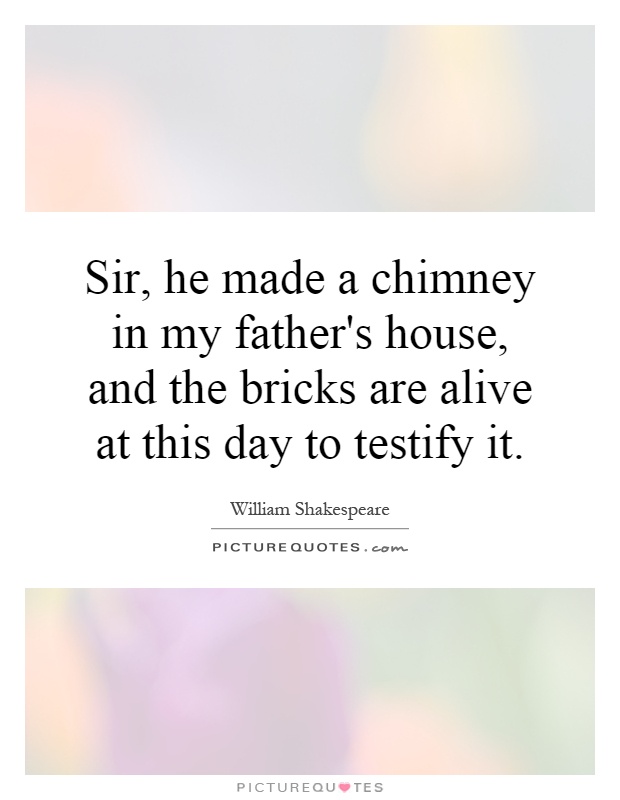Sir, he made a chimney in my father's house, and the bricks are alive at this day to testify it

Sir, he made a chimney in my father's house, and the bricks are alive at this day to testify it
In William Shakespeare's play "The Tempest," the line "Sir, he made a chimney in my father's house, and the bricks are alive at this day to testify it" is spoken by the character Trinculo. This line is part of a comedic exchange between Trinculo, Stephano, and Caliban, as they stumble upon the mysterious island and encounter the magical and powerful Prospero.The line itself is a humorous and exaggerated claim made by Trinculo, who is trying to convince Stephano that Caliban is a valuable servant. By saying that the bricks in his father's house are alive and can testify to Caliban's skills as a chimney builder, Trinculo is using absurdity to make his point. This kind of exaggerated language and playful banter is a hallmark of Shakespeare's comedic writing.
The line also serves to highlight the theme of illusion and reality in "The Tempest." Throughout the play, characters are constantly deceived and manipulated by magic and trickery. The idea that bricks could be alive and able to testify to Caliban's abilities as a chimney builder is clearly absurd, but it serves to underscore the fantastical and otherworldly elements of the play.
Additionally, the line can be seen as a commentary on the power of storytelling and the ways in which narratives shape our understanding of the world. In Shakespeare's time, storytelling was a powerful tool for conveying information and shaping beliefs. By using such a fantastical claim in the context of the play, Shakespeare is highlighting the ways in which stories can be used to persuade, entertain, and deceive.
Overall, the line "Sir, he made a chimney in my father's house, and the bricks are alive at this day to testify it" is a humorous and exaggerated example of Shakespeare's skillful use of language and storytelling. It serves to highlight the themes of illusion and reality in "The Tempest" and showcases Shakespeare's ability to blend comedy and fantasy in his writing.












 Friendship Quotes
Friendship Quotes Love Quotes
Love Quotes Life Quotes
Life Quotes Funny Quotes
Funny Quotes Motivational Quotes
Motivational Quotes Inspirational Quotes
Inspirational Quotes